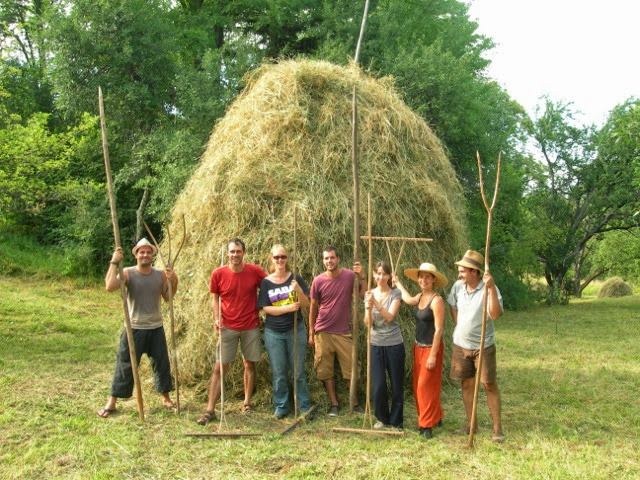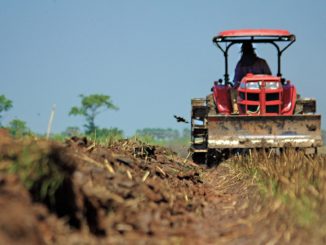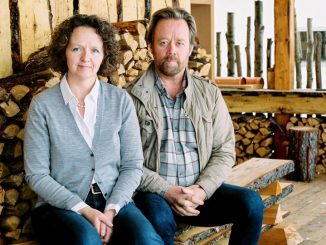
A new report published by Nyeleni Europe, a network of European grassroots civil society organisations campaigning for food sovereignty, and Central Asia Platform for Food Sovereignty, calls for a Common Agriculture Policy (CAP) that explicitly supports small-scale sustainable producers and promotes a re-localisation of food supply-chains.
Launched ahead of the 2nd April Agriculture Committee vote, the next step on the future CAP reform process, More farmers, better food: Why and how to put small-scale sustainable producers at the core of the new CAP lays out a number of concrete measures which put small-holder sustainable producers at their heart. Most importantly, it paves possible pathways for “a transition towards a food system that provides healthy, nutritious, affordable, and locally distributed food for consumers, nourishes soils and biodiverse ecosystems, protects the climate, provides fair prices as well as safe and dignified employment, and promotes social cohesion in rural areas.”
Read Nyeleni Europe More Farmers Better Food
Policy Proposals to Support Sustainable Production, Distribution and Consumption
The total budget of the proposed new CAP is €365 billion, accounting for 28% of the overall EU budget for the period 2021-2027. This means influencing CAP policies and how CAP funds are allocated can go a long way towards ensuring fairer prices and liveable incomes for farmers, increasing incentives for ecologically sustainable production practices, reducing concentration of power along food chains, and supporting the provision of healthier food for the majority, to name just a few attainable goals.
Tangible solutions which could be incorporated into the ongoing CAP reform are clearly outlined in part 3 of the new publication, presented according to specific policy areas:
Production and distribution
capping annual direct payments at €60.000 per beneficiary until the system of untargeted area-based payments is reformed, and making these payments conditional to respect for labour rights and stronger environmental and climate action criteria; giving targeted support for young farmers and new entrants engaging in small-scale agroecology, including a monthly allowance to allow progress towards a decent income; prioritising market regulations such as flexible supply management to prevent and address crises (e.g. dairy crisis); introducing a direct payment measure for producers supplying local and regional markets, and several other proposals.
Consumption, diets and lifestyle
implementing school schemes based on models of sustainable public procurement that favour healthy produce from local small-scale producers; supporting the development of participatory guarantee systems (PGS) to certify producers on participatory quality standards; implementing education programmes on the link between nutrition, health and the way in which food is produced, and more.
The right to natural resources and the commons
replacing untargeted area-based payments with payments conditional on the delivery of positive environmental and social outcomes; removing coupled support for intensive livestock production models; making CAP payments conditional on meeting environmental, climate, biodiversity, and antibiotic use reduction targets; providing rural development funds for improving the quality of life and public services in rural areas; ensuring that new GMOs are not allowed in the EU for cultivation, and that imported GMO foodstuffs are specifically labelled, as decided in European Court of Justice case C-528/16, amongst other measures.
Democratic decision-making processes
participatory development of the National Strategic Plans of each member state, including local authorities and civil society organisations; actively seeking the participation of those most affected and historically marginalized in CAP decision-making processes, namely farmers, farm workers, pastoralists, fisherfolk, and other small-scale agroecological food producers; strict and transparent monitoring of how funds are spent at national level, with binding consequences for mismanagement.
The future of food and farming we want is already here
Nyeleni Europe argues that creating a conducive policy environment to facilitate a transition towards agroecological and other resilient systems of production and distribution is an important step to support the many diverse small-scale food producers already feeding us all. The report brings to the forefront the fact that small-scale producers already form the backbone of EU agriculture: 93% of the EU’s 9.8 million farm holdings are below 50 hectares (ha) in size, with two-thirds being smaller than 5ha. But these producers have too often been marginalized by recent CAP policies. Measures which have promoted market liberalization and focused on ‘competitiveness’ and international trade, have been supporting a damaging model of industrial food production and distribution to the detriment of small-scale farms, rapidly squeezed out of business. In addition, area-based direct payments are skewed towards large-scale farms, incentivizing land and agricultural market concentration, as stated in the report: “the provision of direct payments based on area has incentivised and facilitated this process of consolidation, with 80% of direct payments ending up with just 20% of the beneficiaries. This goes hand in hand with the continued disappearance of small farms, which are often excluded from direct aid eligibility despite the social and ecosystem services they deliver.” And this is where the current CAP reform comes in.
In order to ensure the future CAP delivers on its key objectives, such as fair incomes, protection of food & health quality, preservation of landscapes & biodiversity, environmental care, vibrant rural areas, and more, a holistic and radical reform is needed. What becomes clear through the arguments and policy proposals put forward in the report is that the future of food and farming we want is already out there, but it needs attention and support to thrive, and it cannot co-exist with continued subsidies and payments promoting large-scale chemical-intensive and export-oriented agricultural production.
The opportunity is here to help transition European food systems toward more resilient models of production and consumption. And the beauty of it is that by supporting small-scale sustainable/agroecological producers to thrive not only improves their own lives, but it can have a tremendous positive impact on maintaining lively and diverse rural economies, inspiring young people to remain or enter in on-farm and off-farm activities, regenerating the health of our soils, stewarding biodiversity, reducing climate vulnerability, and the long list goes on. Now it’s up to the European Parliament’s Agriculture Committee to vote in favour of a coherent CAP which puts people and the environment before corporate agribusiness interests.
Organisations active in Nyéléni Food Sovereignty Movement in Europe and Central Asia
European Coordination Via Campesina (ECVC)
World Forum of Fisher People (WFFP)
URGENCI, Community Supported Agriculture Network
Centre for Support of Indigenous peoples of the North (CSIPN)
European Shepherds’ Network (ESN/WAMIP)
Friends of the Earth Europe (FoEE)
FIAN European Sections and Coordinations (FIAN)
Transnational Institute (TNI)
CAP – “Stabilizing the Status Quo” Say SURE-Farm Researchers





